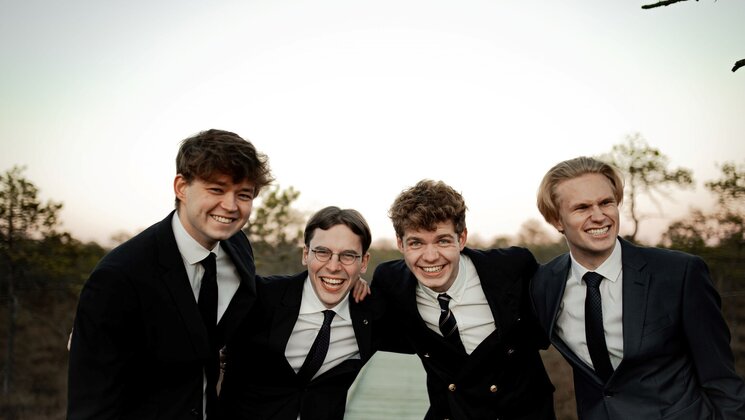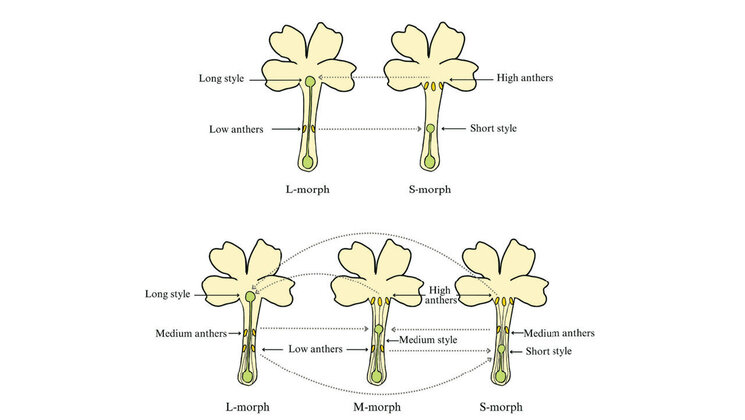-
Faculty of Arts and HumanitiesDean's Office, Faculty of Arts and HumanitiesJakobi 2, r 116-121 51005 Tartu linn, Tartu linn, Tartumaa EST0Institute of History and ArchaeologyJakobi 2 51005 Tartu linn, Tartu linn, Tartumaa EST0Institute of Estonian and General LinguisticsJakobi 2, IV korrus 51005 Tartu linn, Tartu linn, Tartumaa EST0Institute of Philosophy and SemioticsJakobi 2, III korrus, ruumid 302-337 51005 Tartu linn, Tartu linn, Tartumaa EST0Institute of Cultural ResearchÜlikooli 16 51003 Tartu linn, Tartu linn, Tartumaa EST0Institute of Foreign Languages and CulturesLossi 3 51003 Tartu linn, Tartu linn, Tartumaa EST0School of Theology and Religious StudiesÜlikooli 18 50090 Tartu linn, Tartu linn, Tartumaa EST0Viljandi Culture AcademyPosti 1 71004 Viljandi linn, Viljandimaa EST0Professors emeriti, Faculty of Arts and Humanities0Associate Professors emeriti, Faculty of Arts and Humanities0Faculty of Social SciencesDean's Office, Faculty of Social SciencesLossi 36 51003 Tartu linn, Tartu linn, Tartumaa EST0Institute of EducationJakobi 5 51005 Tartu linn, Tartu linn, Tartumaa EST0Johan Skytte Institute of Political StudiesLossi 36, ruum 301 51003 Tartu linn, Tartu linn, Tartumaa EST0School of Economics and Business AdministrationNarva mnt 18 51009 Tartu linn, Tartu linn, Tartumaa EST0Institute of PsychologyNäituse 2 50409 Tartu linn, Tartu linn, Tartumaa EST0School of LawNäituse 20 - 324 50409 Tartu linn, Tartu linn, Tartumaa EST0Institute of Social StudiesLossi 36 51003 Tartu linn, Tartu linn, Tartumaa EST0Narva CollegeRaekoja plats 2 20307 Narva linn, Ida-Virumaa EST0Pärnu CollegeRingi 35 80012 Pärnu linn, Pärnu linn, Pärnumaa EST0Professors emeriti, Faculty of Social Sciences0Associate Professors emeriti, Faculty of Social Sciences0Faculty of MedicineDean's Office, Faculty of MedicineRavila 19 50411 Tartu linn, Tartu linn, Tartumaa ESTInstitute of Biomedicine and Translational MedicineBiomeedikum, Ravila 19 50411 Tartu linn, Tartu linn, Tartumaa ESTInstitute of PharmacyNooruse 1 50411 Tartu linn, Tartu linn, Tartumaa ESTInstitute of DentistryL. Puusepa 1a 50406 Tartu linn, Tartu linn, Tartumaa ESTInstitute of Clinical MedicineL. Puusepa 8 50406 Tartu linn, Tartu linn, Tartumaa ESTInstitute of Family Medicine and Public HealthRavila 19 50411 Tartu linn, Tartu linn, Tartumaa ESTInstitute of Sport Sciences and PhysiotherapyUjula 4 51008 Tartu linn, Tartu linn, Tartumaa ESTProfessors emeriti, Faculty of Medicine0Associate Professors emeriti, Faculty of Medicine0Faculty of Science and TechnologyDean's Office, Faculty of Science and TechnologyVanemuise 46 - 208 51003 Tartu linn, Tartu linn, Tartumaa ESTInstitute of Computer ScienceNarva mnt 18 51009 Tartu linn, Tartu linn, Tartumaa ESTInstitute of GenomicsRiia 23b/2 51010 Tartu linn, Tartu linn, Tartumaa ESTEstonian Marine Institute0Institute of PhysicsInstitute of ChemistryRavila 14a 50411 Tartu linn, Tartu linn, Tartumaa EST0Institute of Mathematics and StatisticsNarva mnt 18 51009 Tartu linn, Tartu linn, Tartumaa EST0Institute of Molecular and Cell BiologyRiia 23, 23b - 134 51010 Tartu linn, Tartu linn, Tartumaa ESTTartu ObservatoryObservatooriumi 1 61602 Tõravere alevik, Nõo vald, Tartumaa EST0Institute of TechnologyNooruse 1 50411 Tartu linn, Tartu linn, Tartumaa ESTInstitute of Ecology and Earth SciencesJ. Liivi tn 2 50409 Tartu linn, Tartu linn, Tartumaa ESTProfessors emeriti, Faculty of Science and Technology0Associate Professors emeriti, Faculty of Science and Technology0Institute of BioengineeringArea of Academic SecretaryHuman Resources OfficeUppsala 6, Lossi 36 51003 Tartu linn, Tartu linn, Tartumaa EST0Area of Head of FinanceFinance Office0Area of Director of AdministrationInformation Technology Office0Administrative OfficeÜlikooli 18A (III korrus) 51005 Tartu linn, Tartu linn, Tartumaa EST0Estates Office0Marketing and Communication OfficeÜlikooli 18, ruumid 102, 104, 209, 210 50090 Tartu linn, Tartu linn, Tartumaa EST0Area of Vice Rector for ResearchUniversity of Tartu LibraryW. Struve 1 50091 Tartu linn, Tartu linn, Tartumaa EST0Grant OfficeArea of Vice Rector for DevelopmentCentre for Entrepreneurship and InnovationNarva mnt 18 51009 Tartu linn, Tartu linn, Tartumaa EST0University of Tartu Natural History Museum and Botanical GardenVanemuise 46 51003 Tartu linn, Tartu linn, Tartumaa EST0International Cooperation and Protocol Office0University of Tartu MuseumLossi 25 51003 Tartu linn, Tartu linn, Tartumaa EST0Area of RectorRector's Strategy OfficeInternal Audit OfficeArea of Vice Rector for Academic AffairsOffice of Academic Affairs0University of Tartu Youth AcademyUppsala 10 51003 Tartu linn, Tartu linn, Tartumaa EST0Student Union OfficeÜlikooli 18b 51005 Tartu linn, Tartu linn, Tartumaa EST0Centre for Learning and Teaching
Whom does the Estonian Orthodox Church of the Moscow Patriarchate serve?

Since the beginning of the Russian war in Ukraine, the Estonian Orthodox Church of the Moscow Patriarchate has stood out with controversial public statements. In the article in Vartja, Priit Rohtmets, Associate Professor of Church History, analyses how the leaders of the Estonian Orthodox Church of the Moscow Patriarchate speak about the ongoing war and how the Estonian society has reacted to the ambiguity in the church’s rhetoric.
The head of the Russian Orthodox Church (ROC) Patriarch Kirill gave a sermon on 25th September, where he said that all Russian soldiers who die in the line of duty in Ukraine have all of their sins forgiven.
Then, on 18th October 2022 Metropolitan Yevgeny (Eugene), the head of the Estonian Orthodox Church of the Moscow Patriarchate (EOC-MP), gave an interview where he said that he had always considered the war evil and that’s the reason why the church was against the war. However, when asked again, whether he was against the war that Russia was waging in Ukraine, he wasn’t so sure anymore and distanced himself from holding Russia responsible for the war.
Both, Kirill’s sermon and the ambivalent position of the EOC-MP received a strong reaction from Estonian religious leaders and politicians.
Urmas Viilma, the Archbishop of the Estonian Evangelical Lutheran Church, also condemned the words of the Patriarch. The tension was growing and the society expected a clear and unequivocally condemning assessment, he added.
According to the Ministry of the Interior, Patriarch Kirill’s speech was an act of hostile influence activity, which was not allowed in Estonia. Therefore, on 27th September Lauri Läänemets, the Minister of Interior, said that he expected a clear message from Metropolitan Yevgeny that he disagreed with Patriarch Kirill.
As Metropolitan Yevgeny did not take a stand on Patriarch Kirill’s words, he was invited to the Ministry of Interior to explain his position in connection with the views of Patriarch Kirill. The state’s position to ask for answers was met with criticism by Christian conservative circles, who considered it an attack against the EOC-MP, which they interpreted as an attack against all Christians living in Estonia. Archbishop Urmas Viilma, who himself had earlier asked the EOC-MP to take a clear position about the war, now asked the public to calm down.
On 12th October Metropolitan Yevgeny officially stated that he did not share the views of Patriarch Kirill concerning his sermon about the forgiveness of sins to Russian soldiers and confirmed that there was no war propaganda made in the church. Ministry of Interior thus stated that there was no reason to consider the EOC-MP as a security threat.
However, this was not all Yevgeny said to explain his position. First, he overruled the claim that he had abandoned his Patriarch and that there was a schism between the two. He just expressed his disagreement with one statement made by Kirill about the forgiveness of sins to soldiers. So, although he disagreed with one statement, he continued to share all the other public statements made by Patriarch Kirill about the war.
While the Estonian churches have done a lot to help Ukrainian refugees and the statements made by the Patriarch of the ROC have also been criticized by the leaders of Estonian religious associations, Yevgeny’s views have received little attention. Although there are people within EOC-MP, who condemn both Kirill’s and Yevgeny’s statements about the war, there is also a large part of the Russian-speaking population who hears Yevgeny and finds out that all wars are bad, that peace must be prayed for, and that refugees must be helped, but that Russia is not the only one to blame for the war. Therefore, Russia can be understood and not condemned. This can be considered a potential threat to maintaining the unity of Estonian society.
Read the full article from Priit Rohtmets in Vartja.
Read more similar news






